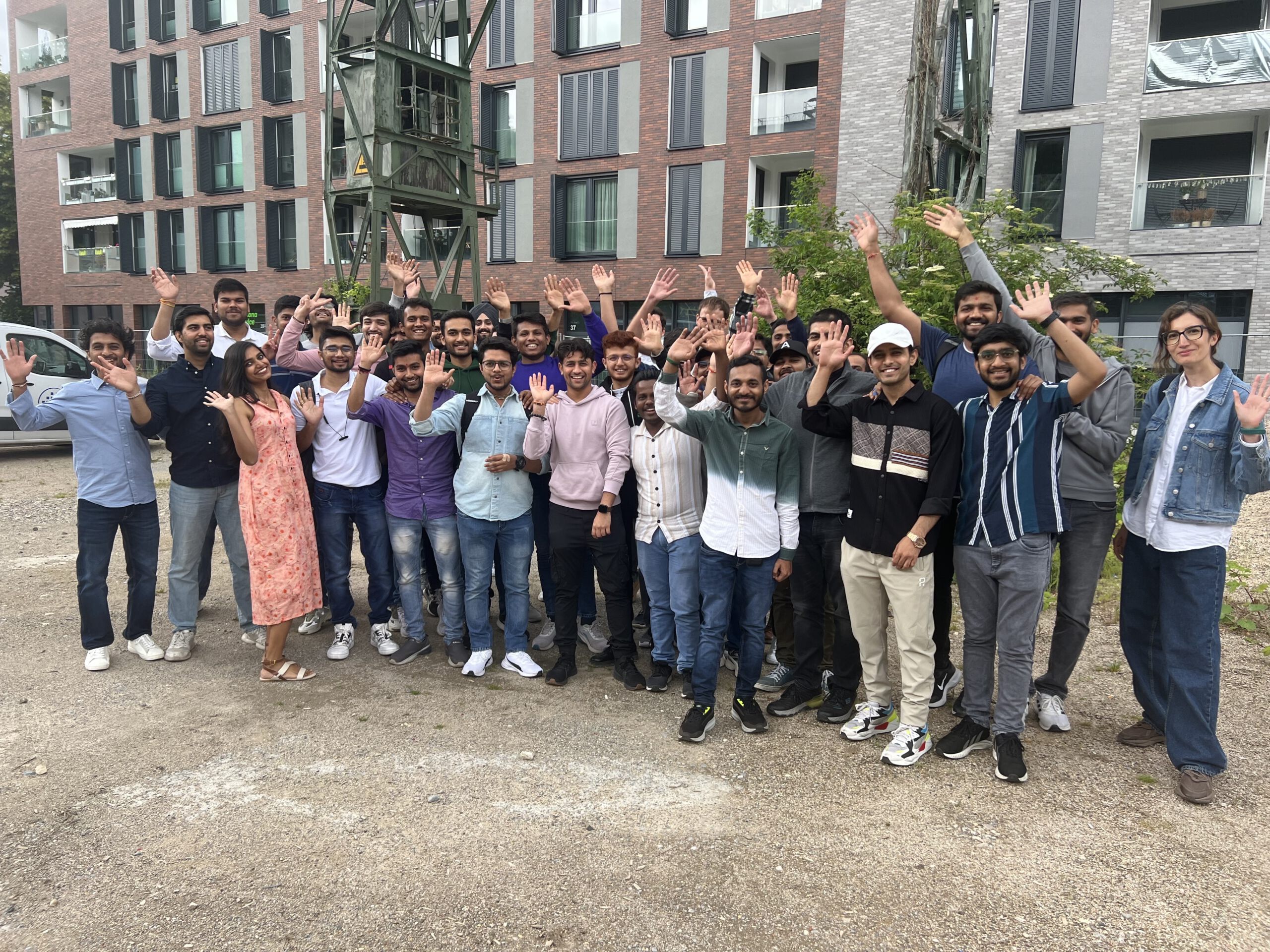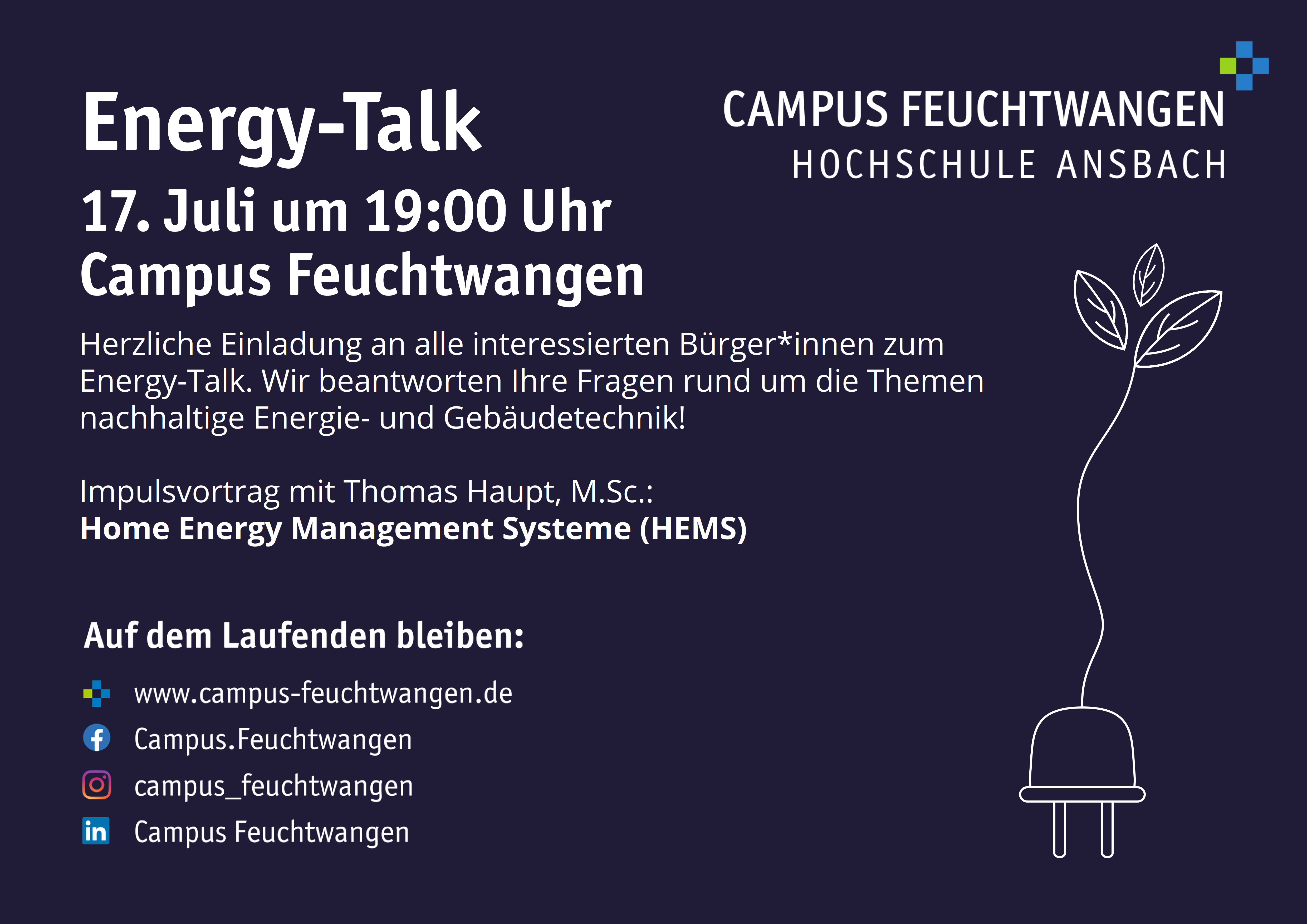Excursion of 35 students to the climate-neutral city quarter in Esslingen
Sustainable energy supply with photovoltaic systems, combined heat and power plants and an advanced electrolyser
35 students from the Feuchtwangen campus of Ansbach University of Applied Sciences recently had the opportunity to visit the innovative energy system of the climate-neutral “Neue Weststadt” neighbourhood in Esslingen as part of the “Virtual Power Plants” lecture with Prof. Dr.-Ing. The excursion offered the students valuable insights into the future-oriented energy concept, which is being realised on the site of a former freight depot.
Student Fahimeh Bagherpoor summarises: “The core is a future-oriented, holistic energy concept with networked energy systems and a research project for the production and use of green hydrogen. As one of six pilot projects, the neighbourhood is being supported as part of the BMWi’s ‘Solar Construction / Energy-efficient City’ funding priority with a funding volume of around 12 million euros. The energy concept is being planned, financed and implemented by Green Hydrogen Esslingen, which was founded in 2019.”
At the heart of the project is a 1 MW electrolyser that converts surplus electricity from photovoltaic and wind energy into green hydrogen. This hydrogen is either stored, used for reconversion into electricity in a combined heat and power plant or fed directly into the natural gas grid. The waste heat generated during electrolysis is efficiently utilised in the local heating network, which significantly increases the overall efficiency of the system.
The guided tour, led by Felix Mayer, offered the students in-depth insights into the technical details and practical realisation of the project. They learned how the combination of photovoltaic systems, combined heat and power plants and an advanced electrolyser contributes to the efficient and sustainable energy supply of the neighbourhood. They were particularly impressed by the flexibility and wide range of possible uses for the hydrogen produced, both for heat supply and for industrial applications and mobility solutions.
Manfred Norbert Fisch, one of the leading minds behind the project, emphasised the importance of green hydrogen for the decarbonisation of the energy and construction industries: “In addition to the environmental benefits, economic aspects also play a role. The utility bills for residents are significantly lower than in conventional housing projects, which is a big plus point.”
The students were enthusiastic about the technical innovations and the practical application of the theoretical concepts from their lectures. The excursion showed them how sustainable energy solutions can be implemented in practice and what role innovative technologies will play in the future energy supply.
The excursion to the climate-neutral “Neue Weststadt” neighbourhood was not only instructive, but also inspiring and motivating for the budding engineers and energy experts. They were able to experience first-hand how the energy transition is being implemented in practice and what challenges and opportunities are associated with it.


